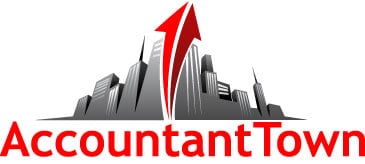Accounting Clerk Careers Guide
When deciding on what type of a career path you wish to follow in the accounting field, one must compare the different opportunities.
Accounting clerks can enroll in a four-year certificate program, two-year associate degree, or a bachelor’s degree course of study. After completing a four-year degree, those interested in becoming accounting clerks will have all the education they need to hold the position.
Accounting clerk jobs are often entry-level, but these individuals are crucial to the overall operation of organizations. Maintaining accurate records and reconciling finances allows higher management to concentrate on more complex transactions.
Factors to Consider to Become a Successful Accounting Clerk
1. Get your degreeWhile you do not need a college degree to work as an accounting clerk, you do require a high school diploma or its equivalent.
2. Refer to previous employment experiencesIf you have actually had previous employment that helped in the development of a range of valuable talents, make a point of discussing them in your resume and other applications or interviews.
3. Refresh your knowledge of software application applications.An accounting clerk needs to have a working knowledge of the Microsoft Workplace Suite, with a specific concentrate on Excel.
4. Boost your soft skillsAdditionally, an accounting clerk should have superior soft skills. You must be an expert in communication, as you will be interacting with colleagues from other departments.
5. Pursue accuracyAnother skill that needs specific attention in your job is an eye for information.
As an accounting clerk, you will supervise of a variety of responsibilities that require this ability, including the following:
- Billings and order or coupons must be reconciled
- Entry of information
- Bank declarations and basic ledger reconciliation
- Accounting records and filing
- Helping the accounts payable and receivable departments with processing
What Are The Tasks Performed By Accounting Clerks?
Just some of the tasks you may be responsible for include data entry into spreadsheets, journal management, financial record preparation for auditors, and tax monitoring. In addition, these professionals input data for the function of preparing and sending tax returns.
Accounting clerks assist a service’s monetary operations by using good accounting practices and processes. Accounting clerks guarantee that the everyday accounting operations of the service operate efficiently.
Amongst their responsibilities are:
- Preserving monetary records
- Producing monetary reports
- Fixing issues with bank statements
- Fixing issues with bank statements
- Making use of accounting software application programs to process deals connected to business’s operations, such as:
- Accounts Payable/Receivable
- Expenditure Receipts
- Cash Transaction Tracking
Additional Potential Responsibilities for Accounting Clerks:
- Daily balance sheet reconciliation
- Deposits and transfers to and from banks are made and kept track of
- Arrange and collect financial information in preparation for routine audits
- Display business credit card deals, including payment inconsistencies, refunds, returns, and other costs
- Organize monetary records
- Account reconciliation on a regular monthly basis and preparation of pertinent management reports
- Preserve a record of tax payments and gather information for tax preparation
- As needed, help with numerous accounting jobs throughout the office
Continuing Education
Whether you wish to pursue a career as an accounting clerk or plan to advance to another job in the future, it’s important to maintain your education. Take advantage of the classes, workshops, and other training opportunities you can find.
Accounting made easy, for FREE!

Access the contact form and send us your feedback, questions, etc. We are always welcome to help someone out. You can also contact us if you wish to submit your writing, cartoons, jokes, etc. and we will consider posting them to share with the world! The Facebook and LinkedIn groups are also good areas to find people interested in accounting like yourself, don’t hesitate to join as everyone of all levels are welcome to become part of the community.
